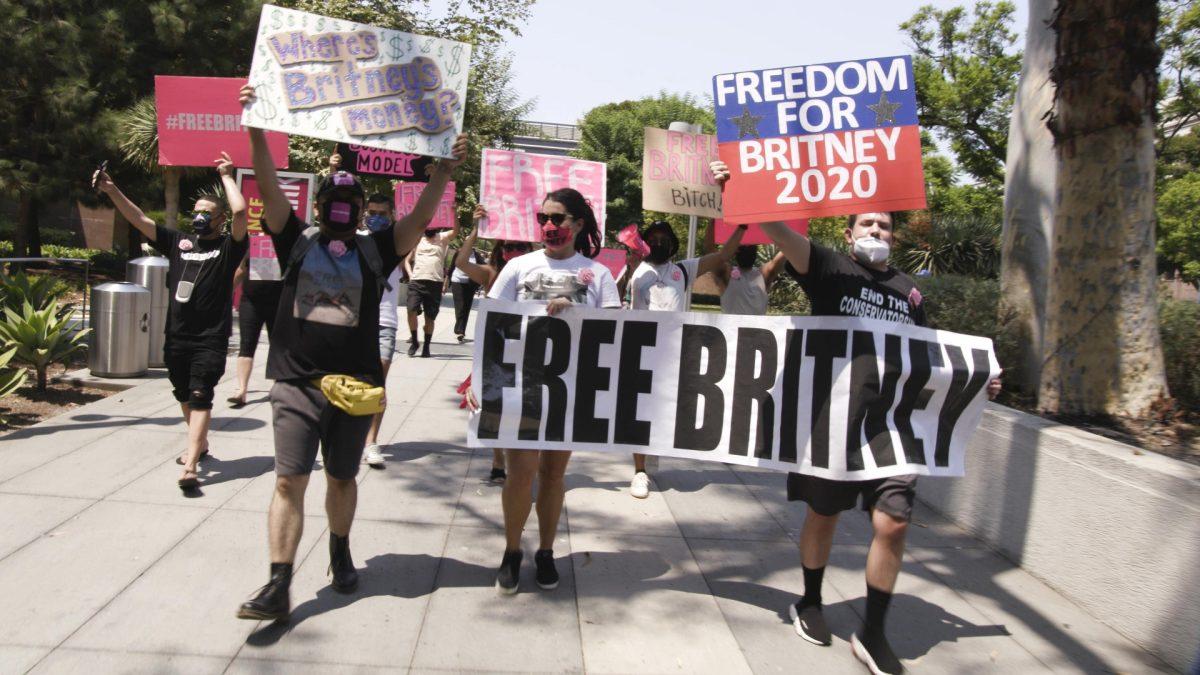“I know at one point she will tell her story.”
This statement by Britney’s assistant Felicia Culotta closes out the New York Times documentary Framing Britney Spears, which covers the Free Britney movement and shows the world just how serious her situation is.
Britney Spears’ father, Jamie Spears, who was completely absent from her life during her rise to fame, has been her conservator for 12 years. This means he has complete control over everything she does — her work, endorsements and television interviews — as well as all of her finances. Jamie Spears swept in right when Britney was at her lowest, likely only to profit off her success. Since he was not in her life when she rose to fame, it is hard to imagine that he is doing this in her best interest.
As someone who grew up only knowing some of Britney’s music and not her entire story, this documentary helped me understand why the Free Britney movement is so important. The documentary describes her career and the process of the conservatorship she has been under for so long. I had seen posts on social media about the Free Britney movement, but until watching this episode of “The New York Times Presents,” I really had no idea what exactly all of this meant for her.
Framing Britney Spears explains exactly how Britney got to the height of her career and how it all came crashing down when the paparazzi would not leave her alone. It was then that she started to feel she had less control of her own life. The interviews with her assistants, paparazzi who followed her, lawyers involved with the conservatorship case and Free Britney activists show how the conservatorship came about and how trapped she is under her father’s control.
Because the New York Times could not get in touch with Britney’s father, other close family members, or Britney herself, we might never know what exactly is going on with her. Her social media gives the impression that she is fighting to get out of this conservatorship and fighting to be free. She has produced a great deal of work even while under her father’s control. Although a lot of this was likely forced onto her by those “in charge” of her, the fact that she could still produce new music and go on tour demonstrates that she is capable of making her own decisions and does not need other people managing her every move.
Learning about what exactly a conservatorship is and how Jamie Spears is likely using it to make money off of his daughter shows that this practice may have greater implications for the future. Conservatorships are usually for people who are unable to make decisions on their own, such as the elderly, because they can be easily manipulated into making poor financial decisions or because they may need help making medical decisions. This is supposed to help protect the conservatee, but in Britney’s case, one wonders how much this actually protects her. Framing Britney Spears leads to the question of whether or not conservatorships can really be beneficial if the conservator is a closely related family member. While it can be helpful to have someone who knows what exactly is best for the conservatee, these situations can quickly spiral and turn into a poor relationship in which the conservator is not acting in the conservatee’s best interests.
The process of getting out of a conservatorship is a lengthy and complicated one, so there needs to be more scrutiny in the future on a case-by-case basis when deciding if a conservatorship is truly best for all parties involved.
The New York Times published another article on Mar. 3 after Jamie Spears’s lawyer spoke out, defending Jamie’s role as conservator. The lawyer stated that had Britney truly wanted to be free from her father’s conservatorship, she could have simply filed a petition to end it. However, the documentary explains that it is extremely difficult for a conservatee to gain their freedom from a conservatorship, so it is hard to believe that it would have been that easy for Britney to do anything.
This documentary does a great job of describing Britney’s career and how it all toppled due to the increasingly toxic tabloid culture in the United States bringing everything going on in her life into the spotlight. It fails to paint a complete picture of the situation, though, because the New York Times did not interview Britney herself or other important people surrounding her, such as her mother, father or siblings. We will never completely know what is happening with Britney Spears until she is finally free from her conservatorship and when she is able to tell the world her story.





